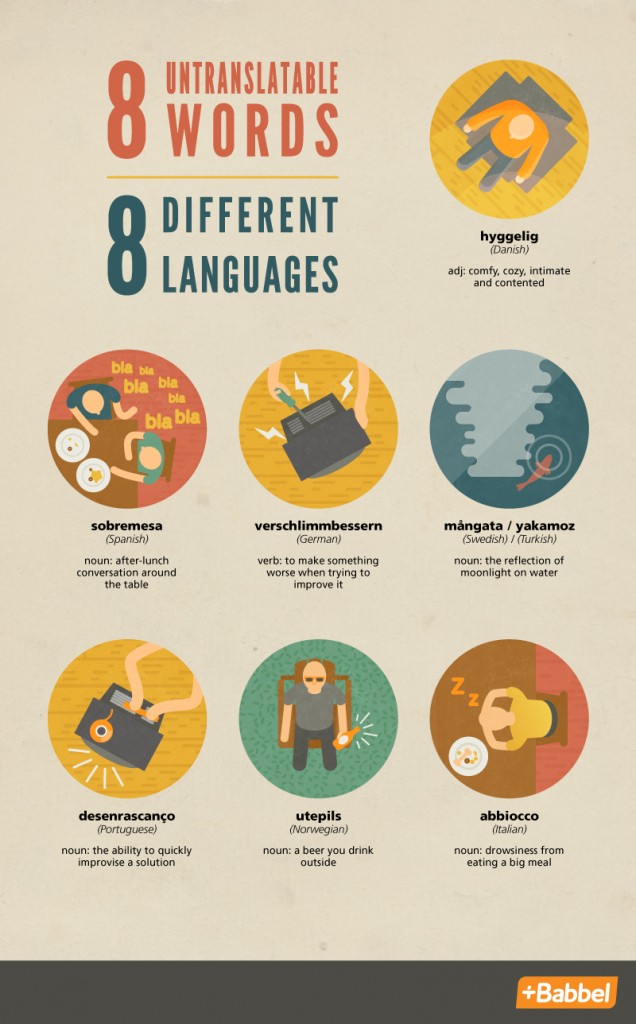My classmates discussed various implications of translating non-English narratives into English, from the act of interpretation by the translator to the confounds of different cultural and linguistic contexts (e.g. idioms cannot be rendered literally from one language to another and still maintain the same meaning). In this post, I would like to elaborate on these ideas, using the novella Die Verwandlung/The Metamorphosis (also translated as The Transformation) by Franz Kafka, published in 1915.
Susan Bernofsky writes in this New Yorker’s article that even the title of Kafka’s novella has an implicit importance that stems from a difference in meaning between the German and English cultures. The German word Verwandlung “is a word from fairy tales used to describe the transformation, say, of a girl’s seven brothers into swans” whereas the English “metamorphosis” entails the change from caterpillar to butterfly. While a German reader might attribute the protagonist’s transformation to supernatural forces and view him as a magical creature that is still partially human, an English reader might view the protagonist to have been changed into a literal insect, orienting him as a nonhuman abomination within the narrative.
A helpful Tumblr post lists several complicating translations of Kafka’s opening sentence:
“As Gregor Samsa awoke one morning from uneasy dreams he found himself transformed in his bed into a gigantic insect.” (translated by Willa and Edwin Muir in 1968)
“When Gregor Samsa woke up one morning from unsettling dreams, he found himself changed in his bed into a monstrous vermin.” (translated by Stanley Corngold in 1972)
“When Gregor Samsa awoke one morning from troubled dreams he found himself transformed in his bed into a monstrous insect.” (translated by Malcolm Pasley in 1992)
“One morning, upon awakening from agitated dreams, Gregor Samsa found himself, in bed, transformed into a monstrous vermin.” (translated by Joachim Neugroschel in 1993)
“One morning, when Gregor Samsa woke from troubled dreams, he found himself transformed into a horrible vermin.” (translated by David Wyllie in 2007)
“When Gregor Samsa awoke one morning from troubled dreams, he found himself changed into a monstrous cockroach in his bed.” (translated by Michael Hoffman in 2007)
The original text is as follows: “Als Gregor Samsa eines Morgens aus unruhigen Traumen erwachte, fand er sich in seimen Bett zu einem ungeheuren Ungeziefer verwandelt.”
As demonstrated by these versions, the main challenge is translating the German words ungeheueres Ungeziefer. Bernofsky’s article explains the origin of Ungeziefer from the Middle High German ungezebere, “an unclean animal unfit for sacrifice”. Ungeziefer also “describes the class of nasty creepy-crawly things…though it otherwise resembles the English word ‘vermin’ (which primarily refers to rodents)” in its usage. There is no exact equivalent word in English for Ungeziefer.
Different cultures require different words to efficiently convey ideas, characteristics, actions, objects, etc., and the English language has evolved for purposes that diverge from other cultures. Aside from untranslatable words, there is also a matter of connotation. Several translations of Kafka’s The Metamorphosis describe the protagonist as “monstrous” or “horrible” as opposed to “gigantic”. The first and second descriptors carry heavy negative weight to them whereas the latter is considered to be neutral, leading to issues with reader interpretation.
Unfortunately, translations are mediated by individuals who are forced to choose from a myriad of terms and phrases, which yield their own connotations, and thus translated text will never stay true to the original text.
